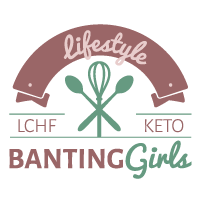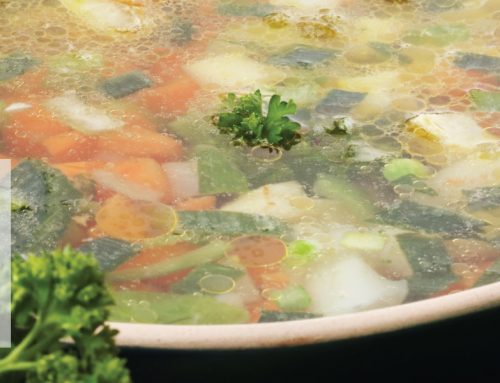Fermented foods and gut health is all in the news at the moment. We were introduced to the idea of fermented foods by Love Kombucha about 2 years ago and started focusing more on foods that promote gut health. Our latest purchase, Pete Evan’s book ‘The Complete Gut Health Cookbook’ has highlighted the importance of fermented foods even more.
Fermented foods are foods that have been through a process of lacto fermentation where natural bacteria feed on sugar and starch in food creating lactic acid. This process preserves food and creates beneficial enzymes, b-vitamins for our bodies. Examples are sauerkraut, miso, kimchi, live yogurt, kefir, kombucha and they are all very good for your gut as it enhances the live good bacteria in your gut.
Fermentation is a natural process and has been used for many years. So how do you ferment vegetables? You soak the vegetables in salt water or in its own juice, allow the growth of bacteria which eats the sugars and as a result you have a sour/tart taste. This type of fermenting is called lacto-fermentation and is the most common type.
Fermented foods have been used by our ancestors for ages. During the Roman era, sauerkraut was consumed, in ancient India, they enjoy lassi a pre-dinner yogurt drink, Bulgarians are known for their kefir and yogurt, Ukrainians consume fermented foods that include yogurt, sauerkraut and buttermilk. Various Asian cultures eat pickled fermentations of cabbage, turnips, cucumbers, onions, carrots.
It is exciting to see that restaurants are seeing the benefits from fermented foods and adding this to their menus as Chef Paul Greening in London, UK is doing at his restaurant Aqua Kyoto by incorporating a range of different techniques throughout his menu.
Here are some different types of fermented foods that are popular today:
Sauerkraut is made with cabbage, salt and water. Very little heat is applied to the final product to prevent killing beneficial microbes. It is also one of the oldest traditional foods. It’s high in dietary fibre, vitamin A, vitamin C, vitamin K and B vitamins. It also contains iron, copper, calcium, sodium, manganese and magnesium. For more benefits see this article from NCBI. https://www.ncbi.nlm.nih.gov/pubmed/25568828
Yogurt – it is best to purchase live bacteria yogurt or make your own and it is certainly better to have full fat yogurt. It is very easy to make your own and much more satisfying than purchasing some
Kombucha – made from tea, sugar and the use of a scoby. It’s a fizzy drink with a bit of a bite and is enjoyed if you like to drink soda. After fermented kombucha becomes carbonated and contains B-vitamins and has a high concentration of acid (acetic, gluconic and lactic) Reasons to drink kombucha every day can be found here. https://draxe.com/7-reasons-drink-kombucha-everyday/
Kefir – this is a bit like yogurt with a more drinkable consistency. Make sure that the kefir that you purchase or make is organic and it’s not loaded with sugar. You can also make your own coconut milk kefir. Here is a great recipe. http://www.globalhealingcenter.com/natural-health/coconut-milk-kefir-recipe/ Kefir benefits include high levels of vitamin B12, calcium, magnesium, vitamin K2, folate and probiotics according to Dr Axe.
Kimchi is all of the craze at the moment, which is a traditional Korean side dish of fermented vegetables. Kimchi is pretty easy to make, although there are quite a few different takes on how to make it. It is pungent, vibrant and an acquired taste. Kimchi is packed full of antioxidants and has 1000 times more lactobacillus than yogurt so it’s amazing for your gut and digestion.
Live bacteria restores the proper balance of bacteria in our guts, they are rich in enzymes, vitamins and nutrients and are much easier to digest and help the digestive system run more smoothly.
Kvass is a Russian beetroot dish that helps purify the blood and improve liver function.
The Benefits of Fermented Foods
- Important nutrients – fermented food is an excellent source of essential nutrients such as vitamin K2 which helps prevent arterial plaque build-up as well as many of the B vitamins
- Immune system – it is said that about 80% of your immune system is located in your gut therefore probiotics play an important role
- Detoxification – fermented food is capable of drawing out a wide range of toxins from your body
- Natural variety of microflora
There are many videos on YouTube that show how to make fermented vegetables. Our three favourites are: one from Pete Evans, one on how to make fermented vegetables at home and one on how to make your own beet kvass.
Lastly, remember LCHF is not a diet, it is a lifestyle change.
Excel with a Low Carb Lifestyle. Until next time!
Eunice & Gina
BantingGirls
http://thenourishingcook.com/how-to-make-fermented-beet-kvass/
https://peteevans.com/recipes/sauerkraut/
http://www.globalhealingcenter.com/natural-health/the-9-best-fermented-foods-for-your-gut/





